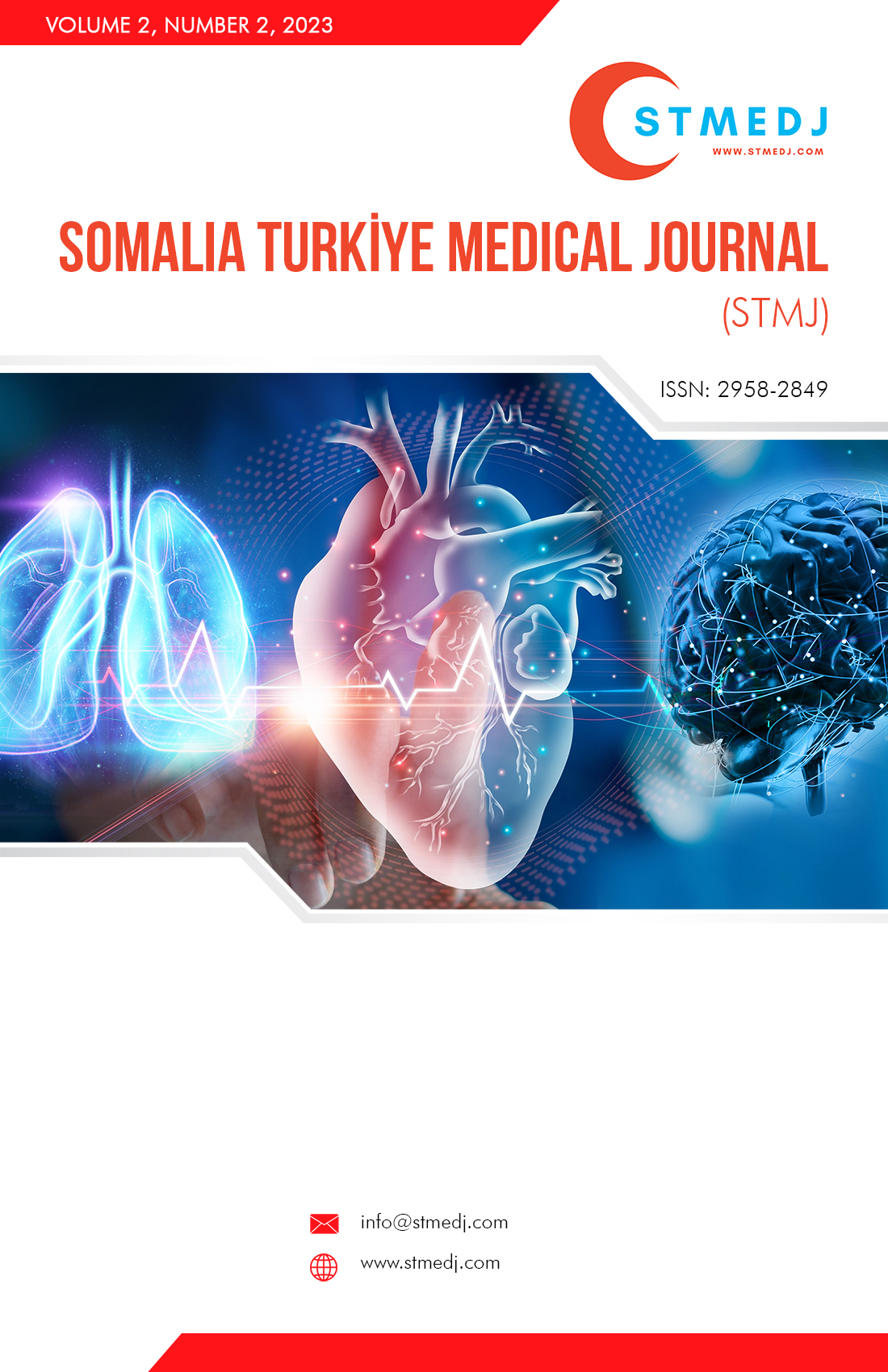Does Percutaneous Nephrolithotomy Cause a Local Decrease in Renal Parenchymal Thickness?
DOI:
https://doi.org/10.58322/stmj.v2i2.24Keywords:
Computed tomography, Percutaneous nephrolithotomy, Renal parenchymal thickness, Renal stoneAbstract
Introduction: This study aimed to investigate the effects of PCNL on the renal parenchymal thickness.
Materials and Methods: Adult (≥18 years) patients who underwent percutaneous nephrolithotomy (PNL) in Health Sciences University Diskapi Training and Research Hospital between May 2016 and May 2021 constituted the target population of this descriptive study. Patient data were retrospectively reviewed. All patients had preoperative and postoperative sixth-month abdominopelvic computerized tomography (CT) scan images and preoperative and postoperative day 1 blood workup results. Stone surface areas (SSA) and stone densities were measured using preoperative CT scans. The renal parenchymal thickness (RPT) was calculated on preoperative and postoperative CT images. Preoperative and postoperative RPT values were compared. Results: 358 patients (232 men and 126 women) were included. Thirty-two (8.9%) patients had 2 PNL surgeries. Median SSA and stone density were calculated as 566.5 (100-2237) mm2 and 937.5 (304-1474) Hounsfield Units. The mean duration of hospital stay was 4.2±2.1 days. Our analysis revealed a significant reduction in RPT (p<0.001). While the median RPT reduction was 2.5 (0-8) mm in patients who underwent PNL once, it was five (1-12) mm in patients who underwent PNL twice (p<0.05). Correlation analysis revealed no correlation between RPT reduction and duration of hospital stay. Conclusion: A significant decrease in RPT was detected after PNL. No correlation was found between the decrease in renal parenchyma thickness and the length of hospital stay.

Downloads
Published
How to Cite
Issue
Section
License
Copyright (c) 2023 Somalia Turkiye Medical Journal (STMJ)

This work is licensed under a Creative Commons Attribution 4.0 International License.

